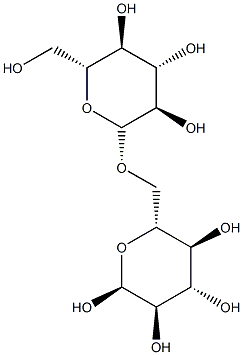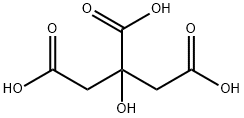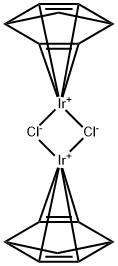Hydrolyzed vegetable protein
Synonym(s):Peptone from vegetable
- CAS NO.:100209-45-8
- Molecular Weight: 0
- MDL number: MFCD05865474
- EINECS: 309-353-8
- Update Date: 2024-11-14 20:10:21
What is Hydrolyzed vegetable protein?
The Uses of Hydrolyzed vegetable protein
Hydrolyzed Vegetable Protein(HVP) The common name of vegetable protein hydrolyzates. The ingredient is specific to the protein source such as hydrolyzed soy protein. They are flavor enhancers obtained from vegetable proteins such as yeast extract, soy protein, wheat gluten, corn gluten, defatted soy flour, and defatted cottonseed. The proteins are hydrolyzed into their component amino acids after which the reaction mixture is neutralized with sodium carbonate and refined. The refined liquid HVP consists of amino acids, monosodium glutamate, amino acid derivatives, salt, and water. After being stored for several months, the liquid HVP is concentrated into a paste, dried, and ground. A typical dried HVP consists of 40–45% salt, which is generated during the neutralization process and serves to enhance the mouth feel of the HVP and provide preservation properties. It normally contains 9–12% monosodium glutamate and the remaining fraction consists of flavor solids. There are two basic types: pale HVP, which functions as a flavor enhancer with delicate spray flavors used in cream-type soups and sauces, and poultry; and dark HVP, which functions as a flavor donor with strong meaty flavors used in stews and broths. HVP is stable under varying processing conditions. It is used to improve flavors in soups, dressings, meats, snack foods, and crackers. It is also termed hydrolyzed protein.
The Uses of Hydrolyzed vegetable protein
Manufactured by a controlled enzymatic hydrolysis of potato proteins. Source of organic nitrogen and growth factors recommended in media for industrial fermentation.
The Uses of Hydrolyzed vegetable protein
Source of organic nitrogen and growth factors recommended in media for industrial fermentation. This potato peptone is manufactured by a controlled enzymatic hydrolysis of potato proteins. It has an increased solubility compared to the potato peptone 83059.
Definition
Substance obtained by acidic, alkaline, or enzymatic hydrolysis of mixed vegetables composed primarily of amino acids, peptides, and proteins. It may contain impurities consisting chiefly of carbohydrates and lipids along with smaller quantities of miscellaneous organic substances of biological origin.
General Description
Peptone (vegetable) acid hydrolysate is a purified hydrolysate which provides the necessary nitrogenous material for culture media or can be used when amino acid mixtures are specified. It can be used for preparing Antibiotic Sensitivity Test Media including Mueller Hinton Agar, in media requiring quantitative addition of tryptophan, in vaccine preparation media as a source of high concentration of free amino acids.
Flammability and Explosibility
Non flammable
Properties of Hydrolyzed vegetable protein
| Density | 0.184[at 20℃] |
| solubility | H2O: soluble2%, clear (light yellow and light brown-yellow and light brown) |
| PH | 6.6±0.5 (25℃, 2% in H2O) |
| Water Solubility | 786g/L at 30℃ |
Safety information for Hydrolyzed vegetable protein
Computed Descriptors for Hydrolyzed vegetable protein
Hydrolyzed vegetable protein manufacturer
New Products
(S)-3-Aminobutanenitrile hydrochloride 4-Methylphenylacetic acid N-Boc-D-alaninol N-BOC-D/L-ALANINOL Tert-butyl bis(2-chloroethyl)carbamate N-octanoyl benzotriazole 3-Morpholino-1-(4-nitrophenyl)-5,6-dihydropyridin- 2(1H)-one Furan-2,5-Dicarboxylic Acid S-2-CHLORO PROPIONIC ACID ETHYL ISOCYANOACETATE 2-Bromo-1,3-Bis(Dimethylamino)Trimethinium Hexafluorophosphate 4-IODO BENZOIC ACID 3-NITRO-2-METHYL ANILINE 1-(2,4-DICHLOROPHENYL) ETHANAMINE (2-Hydroxyphenyl)acetonitrile 4-Bromopyrazole 5,6-Dimethoxyindanone 2-(Cyanocyclohexyl)acetic acid 4-methoxy-3,5-dinitropyridine 1-(4-(aminomethyl)benzyl)urea hydrochloride 2-aminopropyl benzoate hydrochloride diethyl 2-(2-((tertbutoxycarbonyl)amino) ethyl)malonate tert-butyl 4- (ureidomethyl)benzylcarbamate Ethyl-2-chloro((4-methoxyphenyl)hydrazono)acetateRelated products of tetrahydrofuran








You may like
-
 Proteose peptone CAS 100209-45-8View Details
Proteose peptone CAS 100209-45-8View Details
100209-45-8 -
 PROTEOSE PEPTONE CAS 100209-45-8View Details
PROTEOSE PEPTONE CAS 100209-45-8View Details
100209-45-8 -
 Vegetable Hydrolysate No. 2 CAS 100209-45-8View Details
Vegetable Hydrolysate No. 2 CAS 100209-45-8View Details
100209-45-8 -
 1975-50-4 98%View Details
1975-50-4 98%View Details
1975-50-4 -
 2-HYDROXY BENZYL ALCOHOL 98%View Details
2-HYDROXY BENZYL ALCOHOL 98%View Details
90-01-7 -
 2-Chloro-1,3-Bis(Dimethylamino)Trimethinium Hexafluorophosphate 221615-75-4 98%View Details
2-Chloro-1,3-Bis(Dimethylamino)Trimethinium Hexafluorophosphate 221615-75-4 98%View Details
221615-75-4 -
 14714-50-2 (2-Hydroxyphenyl)acetonitrile 98+View Details
14714-50-2 (2-Hydroxyphenyl)acetonitrile 98+View Details
14714-50-2 -
 118753-70-1 98+View Details
118753-70-1 98+View Details
118753-70-1